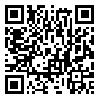Volume 4, Issue 1 (Spring and Summer 2018)
JMIS 2018, 4(1): 17-22 |
Back to browse issues page
Download citation:
BibTeX | RIS | EndNote | Medlars | ProCite | Reference Manager | RefWorks
Send citation to:



BibTeX | RIS | EndNote | Medlars | ProCite | Reference Manager | RefWorks
Send citation to:
Karimi Tezerji S, sarafraz M, Davaridolatabadi N. Evaluation of factors affecting medication errors by nurses in ICU department of hospitals affiliated with Bandar Abbas medical University. JMIS 2018; 4 (1) :17-22
URL: http://jmis.hums.ac.ir/article-1-150-en.html
URL: http://jmis.hums.ac.ir/article-1-150-en.html
Department of Health Information Technology, Faculty of Paramedicine, Hormozgan University of Medical Sciences, Bandar Abbas, Iran.
Abstract: (6587 Views)
Aim: Improper use of medications in any of distribution and prescription stages is called medication error which is preventable. The consequences of medication errors include increase in death rate, duration of hospitalization and medical costs. The goal of the study is to determine types of medication errors and their reasons, and to provide solutions for reducing their frequency in order to prevent the side effects.
Methods: The study is descriptive-analytic and the statistical population are 35 people employed at the ICU department of Children and Shahid Mohammadi Hospitals in 2016. The sampling was performed randomly and the data gathering tools were questionnaires. The analysis was performed deploying descriptive statistics and utilizing SPSS software.
Results: The most important reasons for medication errors were: exhaustion from extra work 82%, lack of enough number of nurses compared to the number of patients 73%, similarities in the forms of medications 72%, similarities in the names of medications 52%, the arrangement of medications on shelves 43%, shortage on pharmacological knowledge 40%, and the least errors were concerned with the wrong patient at 3%.
Conclusion: Considering the findings, it seems that reducing the working shifts, increasing the working shifts, increasing the number of personnel, development of a proper space for the medication room, and retraining courses concerning pharmacology are all directly related to safety of the patients and their expansion is necessary.
Methods: The study is descriptive-analytic and the statistical population are 35 people employed at the ICU department of Children and Shahid Mohammadi Hospitals in 2016. The sampling was performed randomly and the data gathering tools were questionnaires. The analysis was performed deploying descriptive statistics and utilizing SPSS software.
Results: The most important reasons for medication errors were: exhaustion from extra work 82%, lack of enough number of nurses compared to the number of patients 73%, similarities in the forms of medications 72%, similarities in the names of medications 52%, the arrangement of medications on shelves 43%, shortage on pharmacological knowledge 40%, and the least errors were concerned with the wrong patient at 3%.
Conclusion: Considering the findings, it seems that reducing the working shifts, increasing the working shifts, increasing the number of personnel, development of a proper space for the medication room, and retraining courses concerning pharmacology are all directly related to safety of the patients and their expansion is necessary.
Type of Study: Research |
Subject:
Special
Received: 2018/03/5 | Accepted: 2018/08/16 | Published: 2018/09/17
Received: 2018/03/5 | Accepted: 2018/08/16 | Published: 2018/09/17
Send email to the article author
| Rights and permissions | |
 |
This work is licensed under a Creative Commons Attribution-NonCommercial 4.0 International License. |





 hums.ac.ir
hums.ac.ir